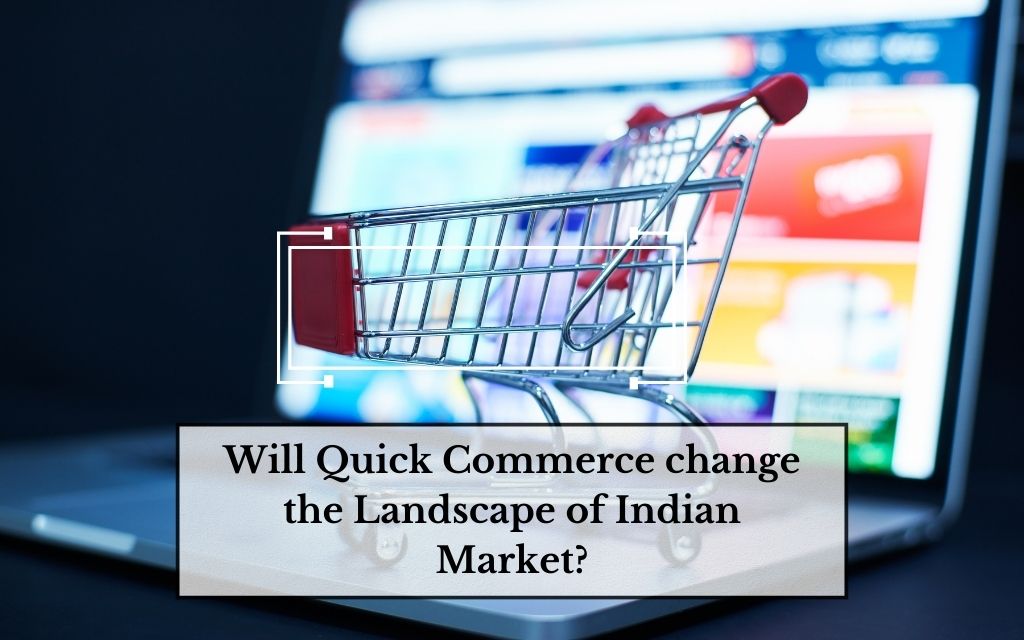The advent of Quick Commerce, or Q-commerce, is transforming the Indian market and the economy. The core idea of this online shopping model is to offer super-fast delivery, with a time range between 15 and 30 minutes. The FMCG sector (fast-moving consumer goods) has also experienced rapid growth thanks to Q-commerce’s speed and convenience. In India, the concept was first introduced by Dunzo and Grofers (now Blinkit), followed by other startups like Swiggy Instamart and Zepto. According to a recent survey, Q-commerce has witnessed explosive growth over the last two years, expanding by more than 280%.
The rise of Q-commerce has also provided a boost to employment generation. According to a report by RedSeer, “Q-commerce platforms provided jobs to over 1 lakh people in 2024. The industry is expected to grow to $6 billion by the financial year 2025.”
Suresh Kumar, a delivery partner at Blinkit Noida, told The Voices, “This job helped me at the time when I was going through a financial crisis. Today, I have a steady source of income and flexibility.”

Apart from delivery jobs, these platforms also provide technology, dark store operations, and supply chain management jobs.
According to Ankit Gupta, store manager of Patanjali Ayurved, Krishna Nagar, “Our sales increased due to quick commerce, and we are working on our supplies to meet the high demand”.
However, amid the rapid growth of Q-commerce, one cannot ignore its impact on the business of traditional stores. Local retail stores, once considered the backbone of the Indian economy, are steadily declining. Most consumers prefer Q-commerce over a local retail store because of its convenience and comfort.
Mohan Gupta, owner of a kirana store in the Radhey Puri area of Delhi, shared, “Earlier consumers used to come on a daily basis, but now there is a decline in daily sales.” Some individuals still choose traditional stores for shopping because of the trust factor, but that is not enough to compete with the growing popularity of Q-commerce.

In urban areas like Delhi-NCR, most people prefer quick delivery due to convenience. Uruba Khan, a working professional at Leverage Edu, Noida, said, “Given my busy schedule, the quick delivery option for the everyday essential goods comes in handy.” On the flip side, though, delivery agents struggle to achieve tight deadlines, which further raises issues regarding fair pay.
Companies such as Zomato and Reliance have also plunged into Q-commerce. Anshpreet Singh, a central supply strategist with Zomato in Gurugram, said, “The new trend of 15-minute delivery is quite challenging. Zomato launched its 15-minute doorstep delivery, which considers various factors such as buffer time, proximity to the restaurant, and the availability of delivery partners to improve the consumer experience. It is still in the early stages and receiving positive feedback.” He also shared his experience working closely with e-commerce in Zomato, “E-commerce tracks delivery, helps manage orders, and provides timely deliveries to improve the consumer experience. This significantly improves the Q-commerce process and user experience.”
Reliance has also expanded its approach to Q-commerce with the launch of Reliance JioMart. Others, like BigBasket, are extending their Q-commerce operations by combining concepts like Super Saver (slotted delivery) with BB Now (quick commerce).
While Q-commerce is transforming the FMCG industry and the fate of traditional stores in India, it comes with its share of challenges. The future of Q-commerce will be determined by how its potential and limitations are balanced.
EDITED BY: Arunima Maharshi

